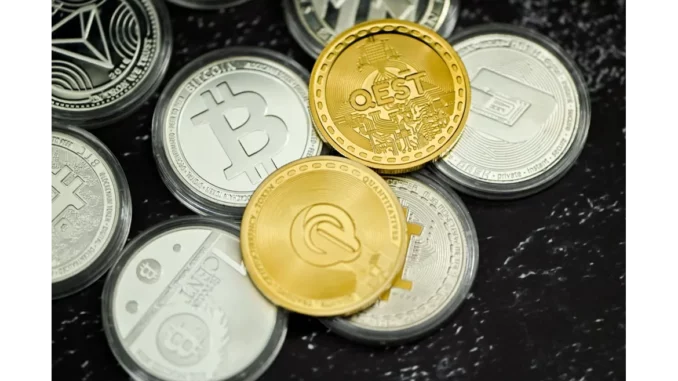
The year 2024 has emerged as a pivotal chapter for the cryptocurrency market, particularly in the arena of exchange-traded funds (ETFs). Among the most notable developments is BlackRock’s spot ether ETF, which, alongside other U.S.-listed ETFs introduced this year, has captured considerable attention. This article delves into the nuances of this new financial instrument, its impact on the market, and the broader landscape of cryptocurrency ETFs.
On July 23, 2024, ether ETFs made their debut on U.S. trading platforms, marking a historic milestone for Ethereum, the second-largest cryptocurrency by market capitalization. This development has ushered ether, the native currency of the Ethereum blockchain, into a financial vehicle that is highly favored by professional investors and advisors. Traditional financial powerhouses like BlackRock and Fidelity, as well as crypto-centric firms such as Grayscale, have rolled out these funds, further integrating digital assets into the mainstream financial ecosystem.
Ether is distinct from Bitcoin in that it is often viewed as an investment in the underlying blockchain technology and the broader cryptocurrency ecosystem. Jay Jacobs, U.S. head of active and thematic ETFs at BlackRock, emphasized Ethereum’s decentralized nature and its potential to drive digital transformation across various industries. This perspective is shared by many who see ether as a key player in the evolving crypto landscape.
The initial performance of ether ETFs has been robust, attracting significant investor interest. On their inaugural trading day, BlackRock, Bitwise Investments, and Fidelity were the early frontrunners, amassing approximately $267 million, $204 million, and $71 million, respectively. Collectively, the nine new ether ETFs generated around $1.1 billion in trading volume on their first day. However, these inflows pale in comparison to those of Bitcoin ETFs, which garnered about $655 million with a total trading volume of nearly $4.7 billion on their debut day. This discrepancy can be attributed to Bitcoin’s larger market cap and its more established presence in the financial markets.
The competitive landscape for ether ETFs is rapidly evolving. Despite Grayscale’s dominant position in the Bitcoin ETF market, the launch of ether ETFs has resulted in a significant shift of funds from Grayscale’s higher-cost offerings to more affordable alternatives from BlackRock, Fidelity, and others. Grayscale’s Ethereum Trust, which has been converted into an ETF, charges a 2.5% management fee, significantly higher than its competitors. This has led to substantial outflows from Grayscale, as investors seek more cost-effective investment options.
Regulatory considerations have played a crucial role in the introduction of ether ETFs. The approval by the U.S. Securities and Exchange Commission (SEC) has been instrumental in legitimizing these financial instruments. However, the SEC has yet to provide clarity on whether staking, a process that offers additional yield to crypto-native investors, qualifies as a security. This ambiguity has prevented new ETF issuers from participating in staking, which could have otherwise attracted a broader investor base.
Looking ahead, projections compiled by CCData suggest that ether ETFs are expected to collectively amass just over $3.5 billion within the next six months, with estimates ranging from $1 billion to $7.5 billion. While these figures are modest compared to Bitcoin ETFs, which have accumulated over $17 billion since their January launch, they nonetheless represent significant growth and interest in ether as an investment vehicle.
The introduction of ether ETFs is a landmark achievement not just for Ethereum but for the entire cryptocurrency market. It signifies a growing acceptance of digital assets within traditional finance and offers investors more avenues to gain exposure to the crypto market. The success of these ETFs could herald the arrival of more innovative financial products in the future, further bridging the gap between conventional finance and the burgeoning world of cryptocurrencies.
In essence, the launch of BlackRock’s spot ether ETF and other ether ETFs this year marks a transformative development in the financial markets. Although they have yet to rival the success of Bitcoin ETFs, their introduction is a significant step towards the mainstream adoption of digital assets. As the market continues to evolve, these ETFs are poised to play a pivotal role in shaping the future of finance.

Be the first to comment